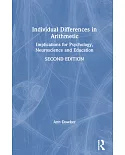Order affects the results you get: Different orders of presenting material can lead to qualitatively and quantitatively different learning outcomes. These differences occur in both natural and
artificial learning systems. In Order to Learn shows how order effects are crucial in human learning, instructional design, machine learning, and both symbolic and connectionist cognitive
models. Each chapter explains a different aspect of how the order in which material is presented can strongly influence what is learned by humans and theoretical models of learning in a variety
of domains. In addition to data, models are provided that predict and describe order effects and analyze how and when they will occur. The introductory and concluding chapters compile
suggestions for improving learning through better sequences of learning materials, including how to take advantage of order effects that encourage learning and how to avoid order effects that
discourage learning. Each chapter also highlights questions that may inspire further research. Taken together, these chapters show how order effects in different areas can and do inform each
other. In Order to Learn will be of interest to researchers and students in cognitive science, education, machine learning.





















